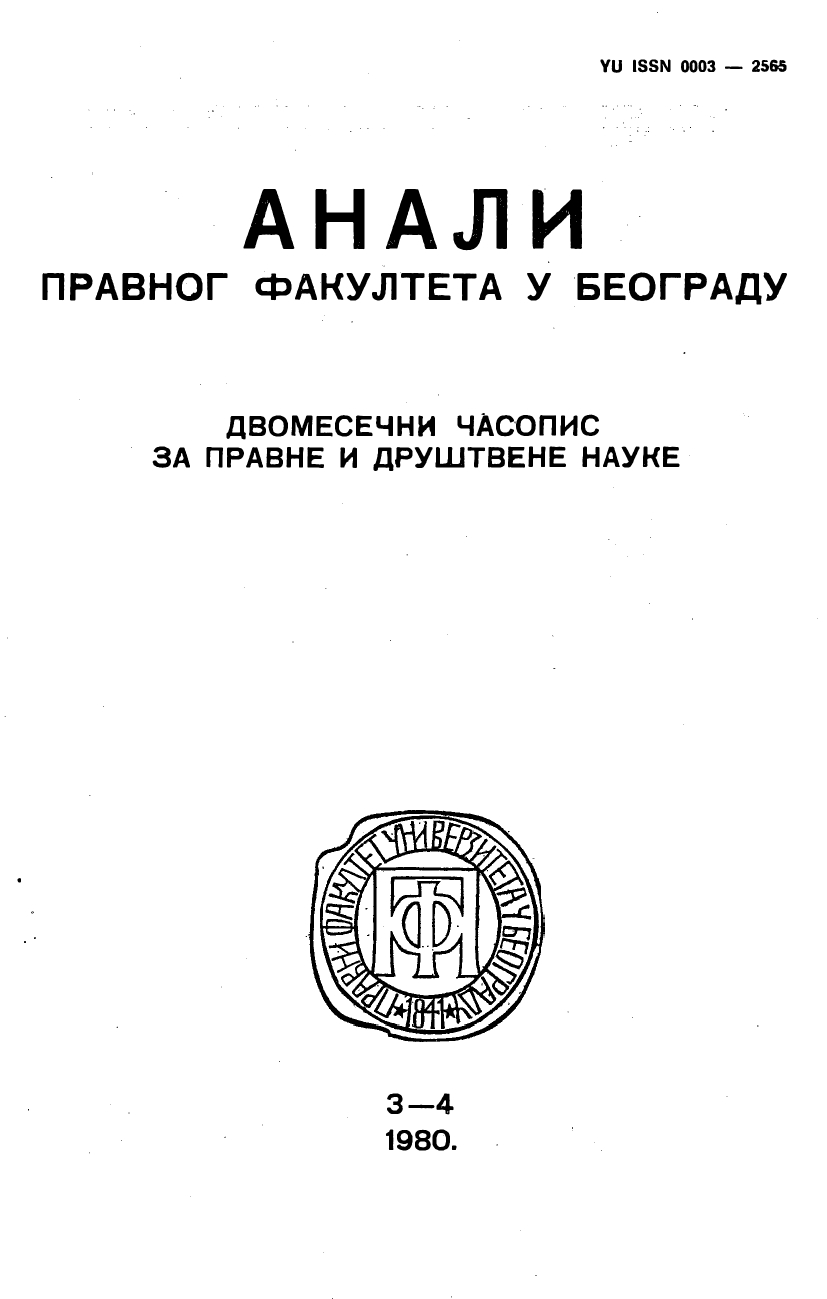УСТАВНА ОБЕЛЕЖЈА СУДИЈСКЕ ФУНКЦИЈЕ
The Constitutional Characteristics of the judicial Function
Author(s): Zagorka Simić JekićSubject(s): Law, Constitution, Jurisprudence, Constitutional Law
Published by: Правни факултет Универзитета у Београду
Summary/Abstract: In this work the author underlines the independence of the judges and their reliance on the Constitution and the Law as the constitutional characteristics of the judicial function. Predominant attention has been paid to the analysis of the concept of judicial independence, although the most significant interpretations of judicial independence have also been set out. Of the diverse opinions relating to judicial independence, the most accurate in the opinion of the author is the one observing this "institute" through the relationship between the judge and the other state institutions as well as between the judge and the parties (subjects) in the procedure, finally, in relation to himself. At the same time, the author subjects the other interpretations of judicial independence to criticism (predominantly those which seek judicial independence only within certain actions relative to criminal procedure.) This critical appraisal has originated from the main determination of the author that the independence of the judge is the characteristic of his every activity in the procedure. There may only be, according to the author, excluded those activities of the judge for which there exist, or may exist, a certain interest of individuals or groups to influence the judge (in reaching decisions), while in the case of others this interest usually does not exist (in the management of the procedure, for instance.). Furthermore, the author thinks that forms of judicial independence cannot be distinguished according to the object — action or individual for which it is established, for the independence of the judge is a legal category with general, that is, common characteristics regardless of whether it is established through actions undertaken by the judge or his relationship with other parties (subjects) in the procedure. The second part of the work deals with the question of reliance of the judge on the Constitution, the law and self-managing general acts, predominantly within the scope of the principle of independence of thé court, and then as an independent principle and a correlation of judicial independence. The question of the independence of the judge in the determination of the factual situation has also been touched upon, in relation to the rules of evidence and the "social reality". The author within the context also sets forth his own point of view concerning the substitution of the term "reliance" of the judge on the Constitution and the law with the term "establishment” on the Constitution and law.
Journal: Анали Правног факултета у Београду
- Issue Year: 28/1980
- Issue No: 3-4
- Page Range: 167-184
- Page Count: 18
- Language: Serbian

